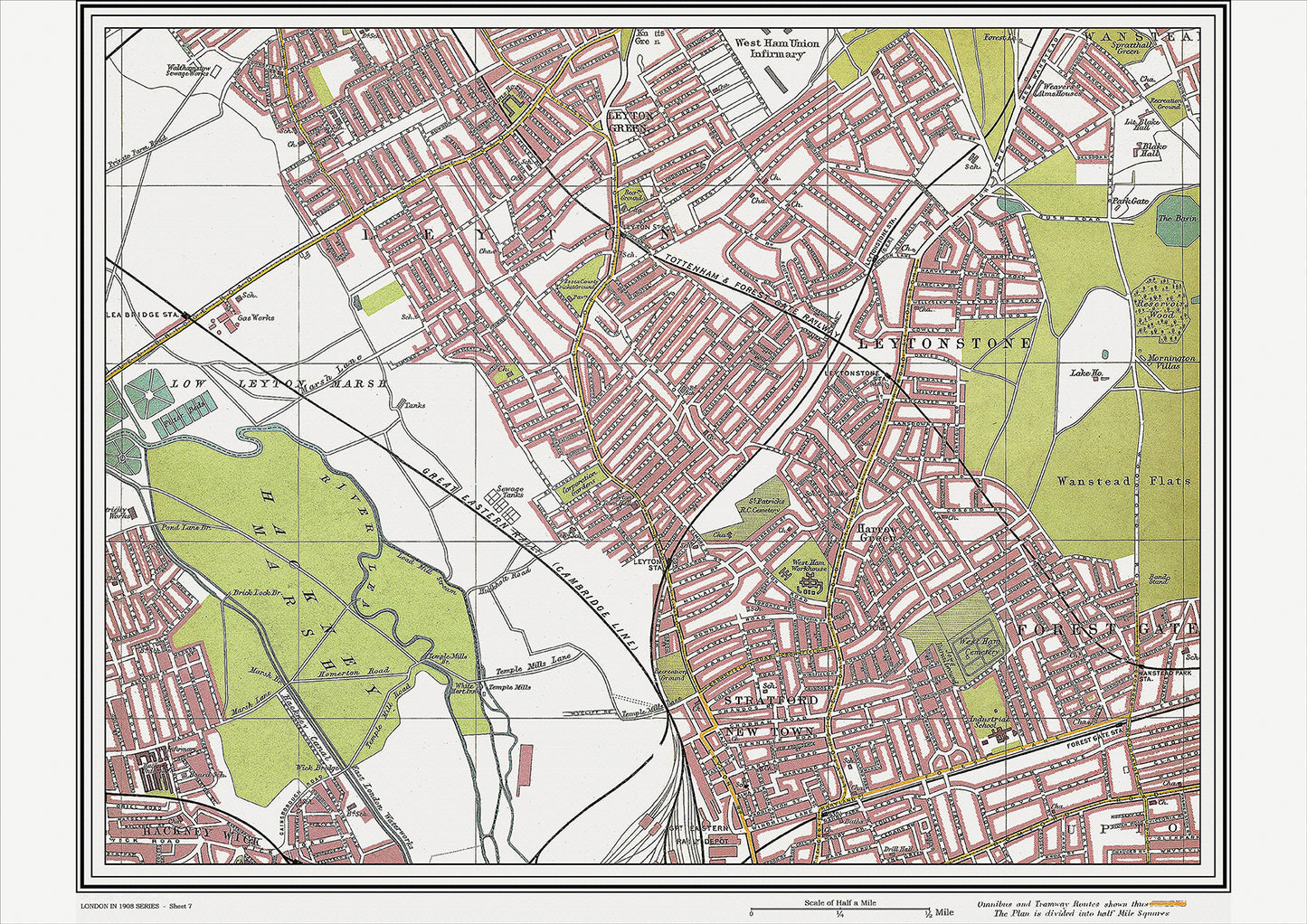Elite Wall Decor
London in 1908 Series - showing Leyton, Leytonstone area (Lon1908-07)
London in 1908 Series - showing Leyton, Leytonstone area (Lon1908-07)
Couldn't load pickup availability
This digital download is a high-quality 300dpi JPG image of a street atlas map dated 1908. It is enlarged, and sized to print if required at A2 dimensions (59.4 cm x 42 cm), making it perfect for framing or use in a project. Or simply view it in close up on your computer screen using Windows Photo or similar.
This series of 1908 maps of London shows (where present) roads, farms, public buildings (such as hospitals, libraries, town halls, churches, schools, colleges, museums, gas works, sewage works, etc.) , larger houses, woods, rivers, estates and parks. They also show footpaths, ponds and lakes.
These maps are sharp and clear. All railway lines and stations are shown and named.
Leyton and Leytonstone, located in the east of London, were both thriving residential areas in 1908, with a few notable historical places of interest. Leyton was known for its historic Leyton Parish Church, while Leytonstone was known for its cultural heritage and charming High Street.
Leyton Parish Church, also known as St. Mary's Church, was a significant landmark in the area and was built in the 12th century. The church was known for its beautiful architecture, including a striking tower and stained-glass windows, and played an important role in the religious life of the area.
Leytonstone was known for its charming High Street, which was home to a number of small businesses and local shops. The area was also home to the historic Stone House Hospital, which was a significant landmark and played a major role in the area's medical history.
Transportation in the area was provided by a network of trams and buses, which connected the area to the city center. Leyton and Leytonstone were also home to a number of parks and green spaces, including Leyton Flats and Leytonstone Park, which were popular destinations for visitors and locals alike.
Overall, Leyton and Leytonstone in 1908 were characterized by their mix of historic landmarks, charming local businesses, and green spaces, which made them popular destinations for visitors and locals alike. Leyton Parish Church and Stone House Hospital were significant parts of the area's cultural and medical heritage, while the High Street and green spaces added to the area's charm and character.
Whether you're a history buff, a cartography enthusiast, or simply looking for a unique piece of decor for your home or office, this map is sure to delight. It's a piece of history that you can own and enjoy for years to come.

